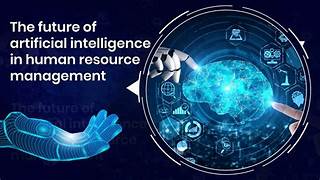The Potential of AI in Enhancing Human Capabilities
The rapid advancement of artificial intelligence (AI) has opened new avenues for enhancing human capabilities, bridging gaps in physical, cognitive, and emotional domains. From assisting individuals with disabilities to augmenting cognitive abilities, AI has become a cornerstone in the evolution of human potential. This article explores the multifaceted role of AI in enhancing human capabilities, delving into its applications, benefits, challenges, and future potential.
The Concept of Enhanced Human Capabilities
Enhancing human capabilities refers to leveraging technology to amplify physical, intellectual, and emotional functions, enabling individuals to overcome limitations and achieve greater efficiency. AI’s ability to process vast datasets, learn patterns, and adapt to new inputs makes it an ideal tool for empowering humans in diverse fields, from healthcare and education to professional development and personal growth.
Key Applications of AI in Enhancing Human Capabilities
1. Assistive Technologies for Disabilities
AI-powered devices and applications are revolutionizing assistive technologies, providing life-changing solutions for individuals with disabilities. Examples include:
- Vision Impairments: AI-enabled wearable devices that describe surroundings and read text aloud.
- Hearing Disabilities: AI-driven hearing aids that filter background noise and enhance speech recognition.
- Mobility Challenges: Robotic exoskeletons and AI-powered prosthetics that restore movement and functionality.
These innovations not only improve quality of life but also promote inclusivity and independence.
2. Cognitive Augmentation
AI tools are enhancing cognitive abilities by supporting memory, decision-making, and problem-solving. Applications include:
- Memory Enhancement: AI-based apps that help individuals organize tasks and recall important information.
- Decision Support Systems: AI algorithms that analyze data to provide actionable insights, aiding professionals in fields such as medicine, law, and finance.
- Learning Platforms: Adaptive learning systems powered by AI that customize educational content to individual needs and learning styles.
3. Emotional and Social Intelligence
AI systems are increasingly adept at recognizing and responding to human emotions, enabling applications such as:
- Mental Health Support: Chatbots and virtual therapists that provide emotional support and early detection of mental health issues.
- Social Skills Training: AI-driven platforms that help individuals with autism or social anxiety develop interpersonal skills.
- Human-Robot Interaction: Social robots designed to assist in caregiving, education, and companionship roles.
4. Workplace Productivity and Creativity
AI tools are enhancing productivity and creativity across industries by automating repetitive tasks and offering innovative solutions. Examples include:
- Automation of Routine Tasks: AI-powered systems that streamline administrative processes, allowing professionals to focus on strategic work.
- Creative Assistance: AI algorithms that generate content, design concepts, and music, complementing human creativity.
- Skill Development: AI platforms that provide personalized training programs and career guidance.
5. Healthcare and Longevity
AI is transforming healthcare by improving diagnostics, personalized treatment, and preventive care. Key advancements include:
- Medical Imaging: AI algorithms that analyze scans to detect diseases such as cancer at early stages.
- Personalized Medicine: AI systems that tailor treatments based on genetic profiles and lifestyle factors.
- Longevity Research: AI-driven studies on aging and interventions to extend human lifespan.
Benefits of AI in Enhancing Human Capabilities
1. Empowerment and Independence
AI technologies empower individuals by enabling them to overcome physical and cognitive limitations, fostering independence and self-reliance.
2. Increased Efficiency
AI streamlines processes, reduces errors, and enhances decision-making, leading to greater efficiency in both personal and professional domains.
3. Improved Accessibility
AI-driven solutions promote inclusivity by making tools and services accessible to individuals with disabilities and diverse needs.
4. Enhanced Learning and Growth
AI provides personalized learning experiences and skill development opportunities, enabling continuous growth and adaptability.
5. Innovation and Creativity
By automating routine tasks and offering novel ideas, AI fosters creativity and drives innovation across fields.
Challenges and Ethical Considerations
1. Equity and Accessibility
The benefits of AI-enhanced capabilities are not evenly distributed, with marginalized communities often lacking access to these technologies. Ensuring equitable access is crucial.
2. Privacy and Data Security
AI systems rely on vast amounts of personal data, raising concerns about privacy and the potential misuse of sensitive information. Robust data protection measures are essential.
3. Bias and Fairness
AI algorithms may perpetuate or amplify existing biases, leading to unfair outcomes. Addressing algorithmic bias and ensuring fairness is a critical challenge.
4. Dependency and Dehumanization
Overreliance on AI technologies may reduce human autonomy and lead to the dehumanization of interactions. Striking a balance between human and machine involvement is necessary.
5. Ethical Dilemmas
The use of AI in areas such as cognitive enhancement and emotional intelligence raises ethical questions about the boundaries of human augmentation and the potential for misuse.
The Future of AI in Enhancing Human Capabilities
The future of AI in human enhancement is promising, with emerging technologies poised to redefine the limits of human potential. Key trends include:
1. Brain-Computer Interfaces (BCIs)
BCIs powered by AI hold the potential to directly link human brains with machines, enabling seamless communication and control over devices.
2. Hyper-Personalized AI Systems
Future AI tools will offer even greater personalization, adapting to individual preferences, habits, and goals to maximize effectiveness.
3. Collaborative Intelligence
The integration of AI with human intelligence will foster a collaborative approach, combining machine efficiency with human creativity and empathy.
4. Global Accessibility
Efforts to democratize AI technologies will ensure that the benefits of enhanced capabilities are accessible to people worldwide, regardless of socioeconomic status.
5. Ethical AI Development
The development of ethical AI frameworks and policies will guide the responsible use of AI in human enhancement, addressing potential risks and ensuring societal benefits.
Conclusion
AI is a transformative force in enhancing human capabilities, offering unprecedented opportunities to overcome limitations, improve quality of life, and drive innovation. From assistive technologies and cognitive augmentation to emotional intelligence and workplace productivity, AI is redefining what humans can achieve. However, addressing challenges related to equity, privacy, bias, and ethics is crucial to ensure that AI serves as a tool for empowerment and inclusivity. By embracing responsible AI development and fostering collaboration, society can unlock the full potential of AI to enhance human capabilities and create a more equitable and innovative future.


